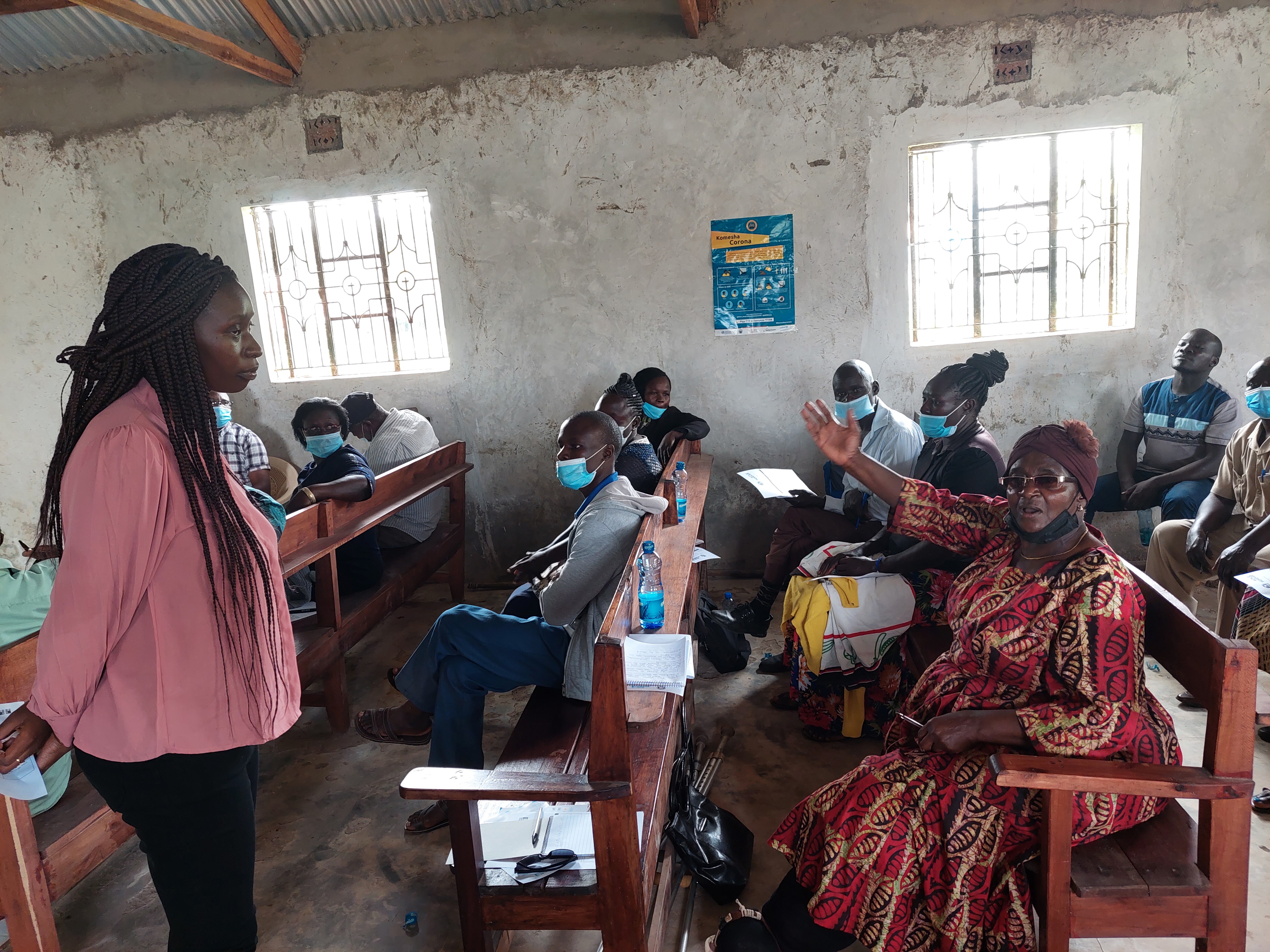From talk-shop to community action in Kenya’s local government
Date:

Busia, western Kenya, is one of the target counties for the UN Joint Devolution Programme, implemented by UN Women in partnership with UNICEF and UNDP. The aim is to strengthen public finance institutions, policies and participation in local politics. The county experiences high levels of gender-based violence (GBV), gender inequality score of 0.65% and a poverty rate of 69.3% (Kenya Economic Survey). It is at high risk of natural disasters including floods and droughts, while managing border issues of insecurity, conflict, and crime.
“We have a lot of issues in Busia. Development is wanting. The state of the roads is not good, just walk around town. There’s a lot of issues related to gender here too, GBV is high and there’s a high number of child trafficking as we are close to a border town,” explains Lynette Mayabi the County Gender Officer. Resources for gender-related programmes are established via annual budgeting cycles which require civic participation, a core element of transparency and accountability provided by Kenya’s Constitution. This process can be exclusionary in Busia.
Kenya’s state apparatus devolved into 47 counties in 2010, bringing democracy closer to the electorate. But a lack of inclusivity in public participation and social accountability has led to lower-level inputs into policies and programmes that focus on gender equality and women’s empowerment (GEWE). By 2018, only 2% of local budgets had allocations towards GEWE.
Francis Namuju is CEO of the Community Empowerment and Development Centre (CEDC), a community-based organisation reaching out to citizens to explain their rights and how they can participate in their own politics. But there are obstacles, particularly for women.
“The biggest hindrances women have is the timing of the public participation; the location of such forums and limited access to the information they need to engage. The capital these women have is another important factor to consider and there are also many women who are illiterate or semi-literate,” says Namuju.
UN Women worked with CEDC and the Federation of Women Lawyers (FIDA) in Busia to strengthen social accountability on county resource allocation and utilization from a gender lens, bytraining women, youth and persons with disabilities to interrogate budget processes.
Despite the barriers, women are often the most proactive in the region when it comes to development issues in their community. Mary Emadau, a retired teacher, has been a community activist and leader for most of her life. She has helped mobilise members of hers, and neighbouring villages to engage local government to install permanent electricity.
“We went to the administration office and asked why the area was in darkness, yet electricity existed along the main road. Residents felt our area had been neglected, people are vulnerable, and we don’t feel part of the county, yet the politician gets our votes. I mobilised the community and helped the villages write a memorandum and petitioned in the area. This is why we need to engage directly with the government to make changes. Otherwise, the funds that are supposed to be used for projects are saved to buy votes during elections. You need more voices – if it is only you, you get stigmatised and you get targeted, ” says Emadau.
The proposal for electricity in Malaba town is one of many community-led initiatives that are gaining traction as a result of the project. Plans are now in place to ensure the construction of health facilities in various locations around Busia and there is a consensus, from the local electorate that both development and gender portfolios of the County’s budget need to be increased for the 2022/2023 cycle. In 2021, communities in Busia submitted a series of memoranda (5) and petitions (3) to the County leadership generating evidence in the process. In 2022 the project will encourage citizens to utilize their knowledge to influence the 2022/23 budget cycle in key sectors that have a greater impact on women.
Civic education on gender responsive budgeting in Busia is implemented by UN Women and partners, in conjunction with UNICEF and UNDP as part of the Joint Devolution Programme supported by the Governments of Sweden, Finland, and Italy.